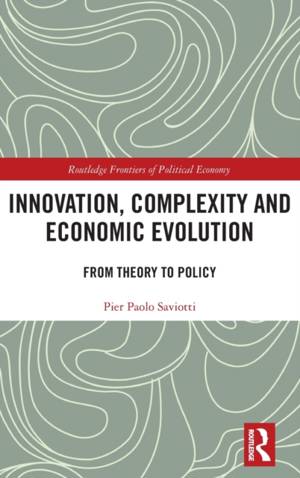
Wil je zeker zijn dat je cadeautjes op tijd onder de kerstboom liggen? Onze winkels ontvangen jou met open armen. Nu met extra openingsuren op zondag!
- Afhalen na 1 uur in een winkel met voorraad
- Gratis thuislevering in België vanaf € 30
- Ruim aanbod met 7 miljoen producten
Wil je zeker zijn dat je cadeautjes op tijd onder de kerstboom liggen? Onze winkels ontvangen jou met open armen. Nu met extra openingsuren op zondag!
- Afhalen na 1 uur in een winkel met voorraad
- Gratis thuislevering in België vanaf € 30
- Ruim aanbod met 7 miljoen producten
Zoeken
€ 168,95
+ 337 punten
Omschrijving
If evolutionary economics is to compete with neoclassical economics as a general-purpose economic theory, it needs to incorporate new aspects of socioeconomic reality, such as institutions of all types, including technical, scientific, and political. Furthermore, evolutionary economics needs to be able to provide policy implications at least as interesting as those of neoclassical economics. Thus, as this book argues, evolutionary economics must become evolutionary political economy. Innovation plays a central role in the book, but not in the sense of providing a technologically determinist interpretation. Rather, the book argues that innovations do not emerge in isolation from other components of socioeconomic systems but coevolve with institutions, infrastructures and organizational forms. This concept of coevolution is absolutely central in the book and provides a link with theories of complexity. In addition to providing an epistemological basis for evolutionary economics, the link with complexity and coevolution offers the connection with evolutionary political economy. Innovations and technologies do not emerge and develop in an institutional vacuum, but interact with existing institutions and reshape them, in addition to inducing the formation of new institutions. In this process, technologies and institutions reinforce each other providing a potential mechanism to transform socioeconomic systems. The book also explores the policy implications of these innovative societies, where wealth is created but unequally distributed. The book is addressed to open-minded economists, social scientists who are dissatisfied with the approach of neoclassical economics, technologists and policy makers.
Specificaties
Betrokkenen
- Auteur(s):
- Uitgeverij:
Inhoud
- Aantal bladzijden:
- 268
- Taal:
- Engels
- Reeks:
Eigenschappen
- Productcode (EAN):
- 9781032278148
- Verschijningsdatum:
- 23/03/2023
- Uitvoering:
- Hardcover
- Formaat:
- Genaaid
- Afmetingen:
- 156 mm x 234 mm
- Gewicht:
- 594 g

Alleen bij Standaard Boekhandel
+ 337 punten op je klantenkaart van Standaard Boekhandel
Beoordelingen
We publiceren alleen reviews die voldoen aan de voorwaarden voor reviews. Bekijk onze voorwaarden voor reviews.











